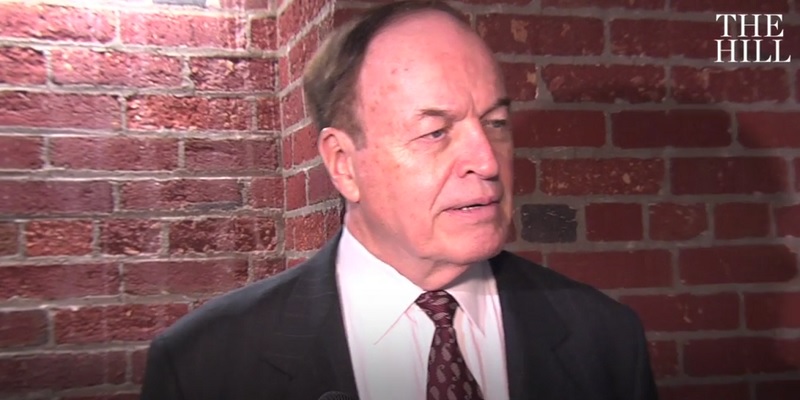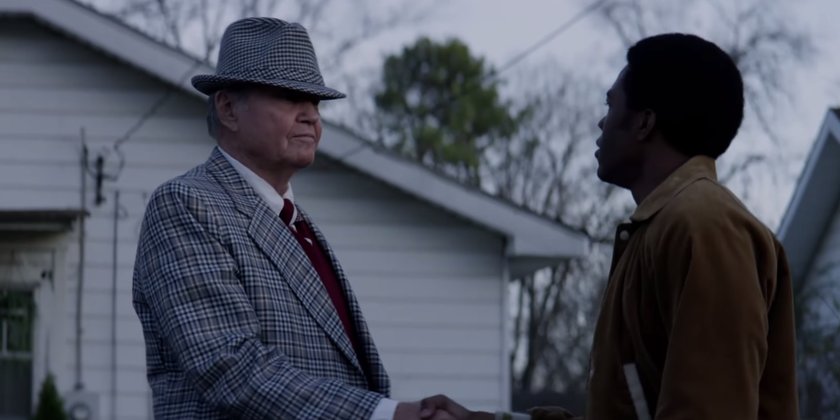(Above: the official trailer for MITT)
Why on Earth would anyone subject themselves to that?
That’s the overwhelming feeling you’re left with after watching MITT, a 92-minute behind-the-scenes documentary of Gov. Mitt Romney’s two failed presidential bids.
Filmmaker Greg Whiteley spent six years embedded with the Romney family after agreeing that he would not release the footage until after Romney had either lost or left the White House. MITT debuted on Netflix over the weekend.
The film is drastically different from The War Room, perhaps the most famous presidential campaign documentary, which followed Bill Clinton’s political team around throughout the 1992 campaign.
While The War Room did an incredible job showing the inner workings of Clinton’s campaign operation, MITT focuses entirely on the Romney family. In fact, The Romney campaign’s senior strategist Stuart Stevens is only seen for a few seconds during the entire film and doesn’t say a word. In that sense, the documentary may leave hardcore political junkies feeling like something is missing.
In truth, both films have voids. One focused entirely on the campaign apparatus and very little on the candidate or his family, the other did the exact opposite. The War Room revealed nothing about the man Bill Clinton is behind closed doors, but that’s precisely where MITT shines.
Most campaigns try their hardest to keep the darker parts of their candidate hidden from the bright lights of the media. But after watching MITT, it becomes frustratingly obvious that the Romney campaign somehow managed to completely obscure what a genuinely decent, down to Earth guy their candidate was.
“I feel like if people really get to know who you are,” said Gov. Romney’s son, Craig, “it could be a successful campaign.” Unfortunately, Romney’s political team did not share that vision for his candidacy.
The toll that campaigns can take on a candidate’s family is palpable from the very beginning of the film.
Gov. Romney gathered his family in their living room in 2006 and asked them to give him the pros and cons of a presidential run. He took notes as they went around the room. Tagg Romney, the governor’s oldest son, got emotional as he told his father it was his “duty” to run.
“If you don’t win, we’ll still love you,” he said. “The country may think of you as a laughingstock and we’ll know the truth, and that’s ok.”

Two years later, after Sen. John McCain had beaten Romney for the Republican nomination, the family had clearly been worn down.
“I would not want to do this again,” Ann Romney said through tears. “It’s too much.”
Another revealing moment occurs when the filmmaker asks another one of Romney’s sons, Josh, if he thinks running for president is more trouble than it’s worth. Josh responds with two different answers — one that he would give if he was asked that question by the media, and another “translating” his answer into the unvarnished truth.
Here’s the “canned” answer:
The opportunity [is] for someone like my dad to come in and run the country. And [with] the challenges we face right now in this country, to have someone with my dad’s experience, his knowledge, and his vision for America, someone that can come in and do this — it’s worth whatever it takes for us to get my dad into office.
And here’s the translation:
This is so awful. It’s so hard. They always say, why can’t you get someone good to run for president? This is why. This is why you don’t get good people running for president. What better guy is there than my dad? Is he perfect? Absolutely not. He’s made mistakes. He’s done all sorts of things wrong. But for goodness sakes, here’s a brilliant guy who’s had experience turning things around, which is what we need in this country. I mean, it’s like, this is the guy for the moment. And we’re in this, and you just get beat up constantly.
The wounds from the 2008 GOP primary were still visible during Romney’s 2012 general election bid. McCain had successfully painted Romney as a flip-flopper, a man who would say anything to get elected. That perception persisted, and Romney was painfully aware of it.
“It’s like trying to convince people that Dan Quayle is smart,” Romney said, comparing the public’s perception of himself to that of George H.W. Bush’s Vice President. “You’re not going to convince them that Dan Quayle is smart. And maybe I’ve got to live with that — ‘Oh you flip on everything.’ In which case, I think I’m a flawed candidate.”
That showed a level of self-awareness that very few candidates are able to muster in the middle of a campaign.
On election night in 2012, Romney and his family sat calmly in a hotel room as the election results came in. The lack of tension in the room is stunning. With all the election night drama spinning around them, MITT shows the Romneys as the tranquil eye of the hurricane.
“I can’t believe you’re going to lose,” one of Romney’s sons says without emotion. “That makes your life better, doesn’t it?” The candidate responded.

Prior to that, Gov. Romney was shown writing his victory speech while on the plane to his final campaign stop in Ohio.
“Tonight, I want to speak about what lies ahead,” he wrote, “about the tomorrow we can build together. … That freedom, so integral to the American experience, will again propel us forward to new heights of discovery, to new horizons of opportunity, and to new dimensions of prosperity.”
The world never got to hear those words. But until the election results were in, Romney had not even considered what he might say in the event of a loss. “What do you think we say in a concession speech?” he asked his family.
That could be interpreted several ways. The Romney campaign received a lot of criticism for disregarding what the polls were saying. And it could be as simple as there being more important things to deal with in the final days of the campaign. But as I watched it, I couldn’t help but think how hard it can be to let go of a dream.
“It’s done?” Ann Romney calmly asked. “Yep… My time on the stage is over, guys.” Romney replied.
Throughout the documentary, the Romneys are shown laughing together, praying together, being painfully honest with each other; and in six years of video footage, not even a single crack is revealed in their character.
The cynic inside of me says that some of the documentary’s moments feel too staged. The family sometimes seems too well arranged during conversations and viewers aren’t privy to very many conversations outside of family meetings that take place after major campaign events.
But MITT also has the endearing quality of a home movie.
Two days after the election, Gov. Romney’s Secret Service detail is shown dropping him and Ann off at their home. “It was an honor,” one of the agents tells the Romneys before driving off for the last time.
They walk inside, sit down together in their living room, and Ann looks at her husband as he gazes out the window. They seem to realize that, for the first time in years, they don’t have a schedule — no more campaign stops, no more press conferences, no more all night flights, bus rides or hotel stays. And there we are, sitting in the living room with them as the dream comes to an end. The camera has become such a part of their lives that they don’t even realize we’re there.
Follow Cliff on Twitter @Cliff_Sims










